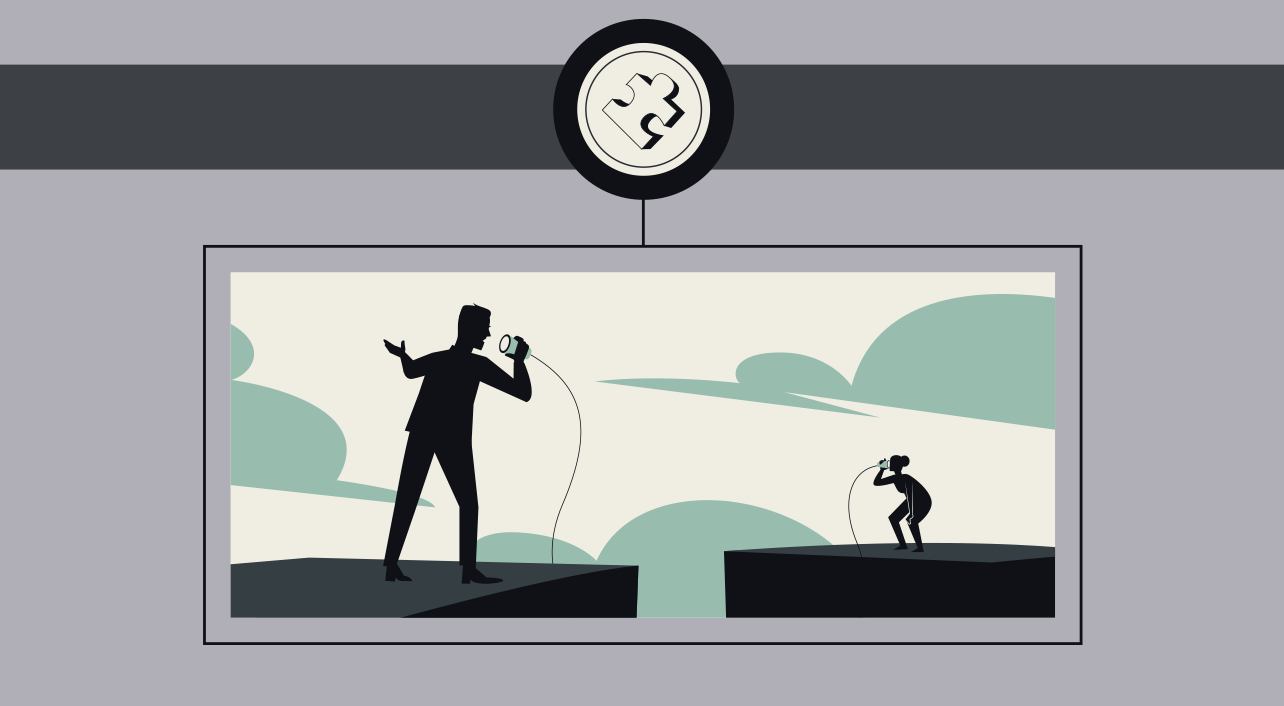- sales
- Blog post
Why buyers don’t tell you everything — it may not be what you think
Sam sells industrial components. One day, he gets a message from a buyer he’s never spoken to before. Adrienne wants pricing and availability and sounds like she’s ready to buy. But when Sam calls back, she seems flustered and embarrassed.
She’s backtracking — and she won’t tell Sam why.
Buyers withhold information all the time. Sometimes it’s to gain a negotiating advantage. Or to quickly end an unwanted sales call.
But the most common and powerful reason buyers hold back is because disclosure puts their self image at risk. They’re hiding something that, if revealed, would make them lose face, expose a fault, or suggest – not to you, but to themselves – that they’re not living up to their own expectations.
A question of ethics
That’s why Adrienne sounded embarrassed when Sam called her back. Truth is, she’d called him because her regular supplier was having delivery problems. But by the time Sam called, the crisis had passed and she didn’t need him anymore.
So why hide that from Sam? Well, Adrienne had known she wasn’t likely to give Sam her business. But to get him to call back in a hurry, she’d hinted that she was actively buying. It wasn’t a big deception – but Adrienne thinks of herself as an ethical person.
The sale is stuck because the buyer’s self image is threatened. That happens, psychologists say, when people feel their behavior doesn’t meet accepted norms – for example, that they’ll be judged to be weak, cowardly or incompetent.
The 4 A’s method
Here’s an easy-to-remember conversational roadmap you can use to disarm these threats and get sales like these unstuck. Think of it as The Four A’s:
- Acknowledge. Threatened buyers don’t want to admit (even to themselves) what’s bothering them. Let them off the hook by normalizing their behavior. Show them that others feel and act the same way.
- Ask for help. As you seek to learn more about your buyer’s source of discomfort, frame your questions as a request: You need the buyer to help you understand something, which shifts the focus from what the buyer is hiding to what you don’t understand.
- Accept. As buyers open up, don’t argue, explain or offer rebuttals. Empathize with the buyer’s challenges. Praise them for being forthcoming.
- Advance, as the threats to your buyer’s ago begin to dissipate. (You may have to move through the first three steps more than once to get to this stage.) Don’t dwell on the threats; leave them behind and refocus on the sales process.
How it works
Let’s look at how to put this conversational roadmap into practice, with Sam and Adrienne:
Sam begins by acknowledging Adrienne’s behavior: “Adrienne, I sensed some urgency in the message you left earlier. It sounds like your situation has changed since then and that’s fine.” With his matter-of-fact, nonjudgmental tone, Sam signals that Adrienne’s apparent change of heart is normal and expected.
Now that Sam has normalized Adrienne’s behavior, he asks her help: “I’d appreciate it if you could help me understand what triggered your initial call?” Here, Sam creates a nonthreatening avenue for Adrienne to tell him the truth.
“I was worried about being too dependent on my regular supplier,” Adrienne says. “But then we talked and I decided it’s best to stick with him. I didn’t call you back because I didn’t want to waste your time.”
Sam accepts her answer. “I appreciate that,” he says. “But I’m actually delighted that you reached out.”
And he means it because Sam now has an opportunity to build a relationship and advance the sales process. He says: “Adrienne, dependence on a single supplier is a concern for everybody. If you think it makes sense to have a backup plan in case of problems in the future, maybe I could help you with that.”
Big benefits
Of course, in the real world these conversations will be more involved. They require insight, empathy and intuition. Also they must be used in a spirit of absolute integrity. If buyers suspect you’re not being completely honest, they’ll end up feeling betrayed.
And not every buyer will open up to you. Sometimes the nature of the sale prevents it – for example, one-and-done transactional sales. And some buyers just aren’t willing to share, no matter what you do. But when you can get your buyers to open up, the benefits are enormous.
This blog entry is adapted from the BTS Total Access micro video “Why buyers hold back — and how to get them to open up.” If you’re a Total Access customer, you can watch the video here. If you’re not, but would like to see this video (or any of our other programs), request a demo and we’ll get you access.


